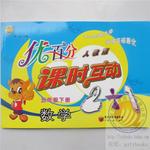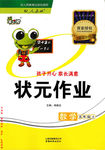题目内容
This is a time of year when we think about giving and receiving presents. Can you find little extra to give? On this page we suggest a few organizations you might like to help.
Littleton Children’s Home
We DON’T want your money, but children’s toys, books and clothes IN GOOD CONDITION would be very welcome.
Also, we are looking for friendly families who would take our children into their homes for a few hours or days as guests. You have so much—will you share it?
Phone Sister Thomas on 55671.
Children’s Hospice
We look after a small number of very sick children. This important work needs skill and love. We cannot continue without gifts of money to pay for more nursing staff (职员).We also need story books and toys suitable for quiet games.
Please contact :The Secretary, Little Children’s Hospice, Newly Road.
Street FoodIn the winter weather, it’s not fun being homeless. It’s even worse if you’re hungry. We give hot food to at least fifty people every night. It’s hard work, but necessary. Can you come and help? If not, can you find a little money? We used a very old kitchen, and we need some new saucepans. Money for new ones would be most welcome indeed.
Contact Street Food, c/o Mary’s House, Elming Way. Littleton Phone 55823.
Littleton Youth ClubHave you got an unwanted chair?-a record-player?-a pot of paint?
Because we use them!
We want to get to work on our meeting room!
Please phone 55231 and we’ll be happy to collect anything you can give us!
Thank you!
The Night ShelterWe offer a warm bed for the night to anyone who has nowhere to go. We rent the former Commercial Hotel on Green street. Although it is not expensive, we never seem to have enough money. Can you let us have a few pounds? Any amount, however small, will be such a help.
Send it to us 15,Greet St, Littleton. Please make check payable to Night Shelter.
1.Reading the passage, you might like to help these organizations while working for .
A.homeless and sick children
B.less fortunate members of our society
C.hungry people who have no beds to sleep in
D.friendly members of our society to help others
2.We can infer .
A.there are too many social problems in this country
B.people are very poor during the time for giving
C.warm-hearted people like to give away money
D.this passage is taken from a local newspaper
3.If your children have grown up, you may take the children’s things to .
A.Children’s Home and Children’s Hospice
B.Youth Club and Children’s Home
C.Children’s Hospice and Night Shelter
D.Youth Club and Night Shelter
BBA

 优百分课时互动系列答案
优百分课时互动系列答案 开心蛙状元作业系列答案
开心蛙状元作业系列答案Let children learn to judge their own. A child who learns to talk does not learn by being corrected all the time; if corrected too much, he will stop talking. He notices a thousand times a day the difference between the language he uses and the language those around him use. Little by little, he makes the necessary changes to make his language like other people’s, in the same way, children learn to do all the other things without being taught—to walk, run, climb, ride a bicycle—compare their own performances with those of more skilled people, and slowly make the needed changes. But in school we never give a child a chance to find out his mistakes if we thought that he would never notice a mistake unless it was pointed out to him, or correct it unless he was made to. Let him work out, with the help of other children if he wants it, what this word says, what the answer is to that problem, whether this is a good way of saying or doing this or not. If it is a matter of right answers, as it may be in mathematics or science, give him the answer book. Let him correct his own papers. Why should we teachers waste time in doing such work? Our job should be to help the child when he tells us that he can’t find the way to get their own understanding, how to know what they know or do not know.
1.According to the passage, the best way for children to learn things is ___
|
A.to listen to skilled people’s advice |
|
B.to ask older people many questions |
|
C.to make mistakes and have them corrected |
|
D.to do what other people do |
2.According to the writer, teachers in school should ___
|
A.allow children to learn from each other |
|
B.point out children’s mistakes whenever they are found |
|
C.correct children’s mistakes as possible as they can |
|
D.give children more book knowledge |
3.Which of the following does the writer think teachers should not do?
|
A.Give children correct answers |
|
B.allow children to make mistakes |
|
C.Point out children’s mistakes |
|
D.Let children judge their own work |
4.The passage suggests that learning to speak and learning to ride a bicycle are ___.
|
A.different from learning other skills |
|
B.the same as learning other skills |
|
C.more important than other skills |
|
D.not really important skills |
It was Monday. Mrs. Smith's dog was hungry , but there was not any meat in the house.
Considering that there was no better way. Mrs. Smith took a piece of paper, and wrote the following words on it:“Give my dog half a pound of meat.”Then she gave the paper to her dog and said gently:“Take this to the butcher(* person whose job is selling meat)and he's going to give you your lunch today.”
Holding the piece of paper in its mouth, the dog ran to the butcher's. It gave the paper to the butcher. The butcher read it carefully, recognized that it was really the lady's handwriting and soon did it as he was asked to. The dog was very happy, and ate the meat up at once.
At noon, the dog came to the shop again. It gave the butcher a piece of paper again. After reading it, he gave it half a pound of meat once more.
The next day, the dog came again exactly at noon. And as usual, it brought a piece of paper in the mouth. This time, the butcher did not take a look at paper, and gave the dog its meat, for he had regarded the dog as one of his customers.
But, the dog came again at four o'clock. And the same thing happened once again. To the butcher's more surprise, it came for the third time at six o'clock, and brought with it a third piece of paper. The butcher felt a bit puzzled . He said to himeself,“This is a small dog. Why does Mrs. Smith give it so much meat to eat today?”
Looking at the piece of paper, he found that there were not any words on it!
1.Mrs. Smith treated her little dog quite .
|
A.cruelly |
B.fairly |
C.kindly |
D.friendly |
2.It seemed that the dog knew well that the paper Mrs. Smith gave it .
|
A.might do it much harm |
B.could do it much good |
|
C.would help the butcher |
D.was worth many pounds |
3.The butcher did not give any meat to the dog .
|
A.before he felt sure that the words were really written by Mrs. Smith |
|
B.when he found that the words on the paper were not clear |
|
C.because he had sold out all the meat in his shop |
|
D.until he was paid enough by Mrs. Smith |
4.From its experience, the dog found that .
|
A.only the paper with Mrs. Smith's words in it could bring it meat |
|
B.the butcher would give the meat to it whenever he saw it |
|
C.Mrs. Smith would pay for the meat it got from the butcher |
|
D.a piece of paper could bring it half a pound of meat |
5.At the end of the story, you'll find that .
|
A.the dog was clever enough to write on the paper |
|
B.the dog dared not go to the butcher's any more |
|
C.the butcher was told not to give any meat to the dog |
|
D.the butcher found himself cheated by the clever animal |
